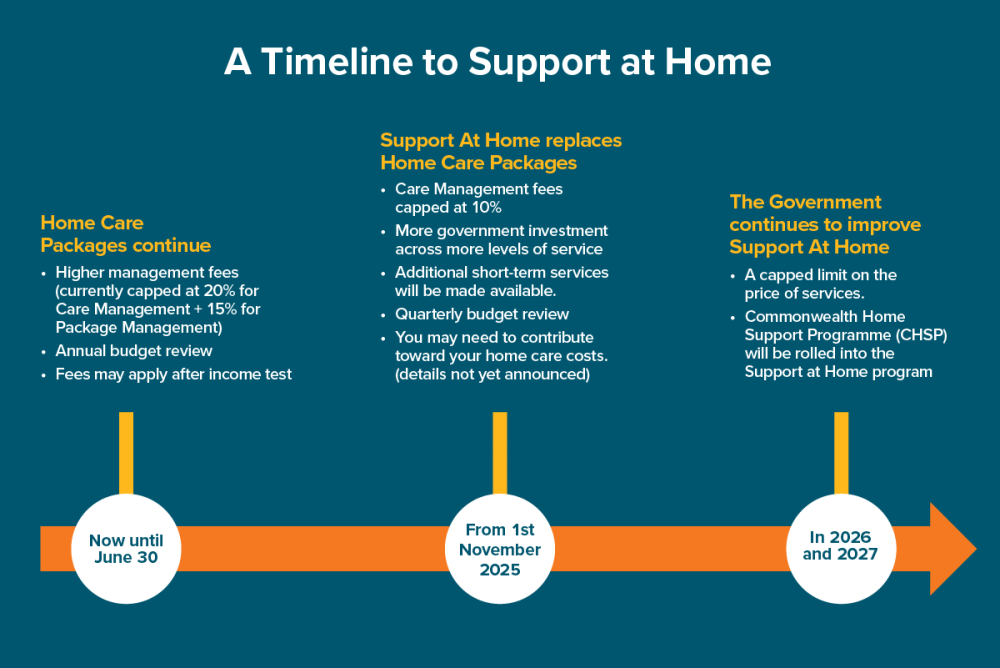What you should know before starting services with home care providers under NDIS
What you should know before starting services with home care providers under NDIS
Blog Article
Everything About Home Care Solutions for People With Disabilities: NDIS Registered Assistance
Home care services under the NDIS play an essential function in sustaining individuals with handicaps. These services are created to boost day-to-day living via customized help, ranging from personal like movement support. Understanding exactly how to navigate these options can be complicated. This summary explores the numerous aspects of NDIS home treatment, from readily available services to the choice of carriers, highlighting crucial considerations for those seeking support. The journey towards empowered treatment starts right here.
Recognizing the NDIS and Its Purpose
The National Disability Insurance Coverage Scheme (NDIS) acts as a transformative framework developed to give support and services for people with disabilities. Developed to improve the lifestyle and warranty fair access to essential sources, the NDIS encourages participants by offering customized strategies tailored to their distinct needs. It intends to foster freedom, making it possible for people to seek their personal objectives and aspirations.Through a structured technique, the NDIS allots funding for various supports, consisting of education and learning, work assistance, and area involvement. This comprehensive system not only concentrates on prompt care however also emphasizes long-term developmental outcomes. By promoting selection and control, the NDIS urges individuals to pick their recommended solution carriers, assuring that treatment lines up with their preferences and worths. Inevitably, the NDIS stands for a significant dedication to enhancing the lives of individuals with handicaps, promoting inclusivity, and constructing a more helpful culture.
Kinds of Home Treatment Provider Available
Numerous types of home care services accommodate individuals with specials needs, primarily focusing on individual care help and respite care choices. Individual treatment assistance provides important assistance with everyday activities, while reprieve care uses short-term relief for primary caretakers. Understanding these solutions is important for ensuring the well-being of both people with specials needs and their family members.
Personal Treatment Support
While steering life can provide difficulties for people with handicaps, individual treatment aid offers necessary assistance tailored to their special needs. This type of home care solution encompasses a series of tasks developed to promote self-reliance and improve lifestyle. Individual treatment aides assist with daily tasks such as bathing, dressing, grooming, and toileting, making certain people keep individual health and comfort. They might also aid with meal preparation, medication administration, and wheelchair assistance. By providing personalized treatment, these experts equip individuals to involve even more completely in their daily routines and social activities. In general, individual treatment aid plays a significant duty in cultivating dignity and freedom for those with handicaps, allowing them to prosper in their home environment.

Respite Care Options
Reprieve care acts as a necessary resource for households and caretakers of people with specials needs, providing short-lived remedy for the needs of daily caregiving. This kind of solution can take different kinds, consisting of at home reprieve care, where trained professionals see the home to help with treatment jobs. Families might opt for facility-based break treatment, where people obtain treatment in a specialized environment, allowing caregivers to take a break. In addition, some organizations use emergency break services for unforeseen scenarios. These options not just help relieve caregiver anxiety yet likewise advertise the well-being of individuals with specials needs by offering them brand-new experiences and social communication. In general, reprieve treatment plays a vital function in supporting both caretakers and those they care for.

Exactly How to Gain Access To NDIS Home Treatment Solutions
Accessing NDIS home treatment services involves recognizing the eligibility criteria stated by the National Impairment Insurance Policy System. Individuals need to browse an organized application process to protect the needed support tailored to their needs. This area will certainly make clear both the qualification requirements and the actions involved in obtaining services.
Eligibility Criteria Clarified
To get NDIS home treatment services, individuals must fulfill particular qualification standards that evaluate their situations and demands. First, applicants have to be aged between 7 and 65 years and have a long-term and substantial handicap that influences their ability to execute everyday tasks. In addition, they should be an Australian citizen, a permanent homeowner, or hold a Protected Unique Classification Visa. The NDIS needs proof of the disability, commonly through medical analyses or records. Individuals need to demonstrate that they need assistance to participate in financial and social life. These criteria assure that services are guided in the direction of those that really require assistance, promoting self-reliance and improved quality of life for people with disabilities.
Application Refine Actions
Can I Choose My Very Own Support Employees Via NDIS?
The individual inquired whether they can choose their very own assistance workers under the NDIS structure. Normally, individuals have the versatility to select assistance workers, fostering individualized treatment that aligns with their details requirements and choices.
What Occurs if My Demands Adjustment After Getting Assistance?
They must interact these modifications to their service copyright if a person's demands modification after obtaining support. Adjustments can be made to the treatment plan, making sure that the support continues to be appropriate and reliable for their scenarios.

Are There Limits on The Number Of Hours of Care I Can Receive?
The Click Here individual asked concerning potential limits on the number of care hours got. Usually, such limitations might exist based upon details plans or moneying setups, stressing the importance of reviewing contracts and standards on a regular basis.
Can I Use NDIS Funding for Home Alterations?
The inquiry of making use of financing for home alterations emerges frequently. Normally, individuals may utilize NDIS funding for necessary modifications to their homes, ensuring ease of access and safety, section upon meeting certain qualification standards and standards.
Just how Do I Deal with Grievances Regarding My Home Treatment Services?
To resolve complaints concerning home treatment services, people must first document their problems. Then, they can communicate straight with their company, seeking resolution, or rise the issue to relevant oversight bodies if required. Home treatment services under the NDIS play a pivotal function in supporting people with specials needs. Numerous types of home care services provide to individuals with impairments, largely focusing on individual treatment help and respite care alternatives. support at home provider. Personal treatment aid provides crucial support with day-to-day activities, while break treatment provides short-lived alleviation for main caretakers. Families may choose for facility-based respite care, where people obtain treatment in a specific environment, enabling caregivers to take a break. How can family members efficiently take care of the economic elements of home treatment solutions for individuals with specials needs?
Report this page